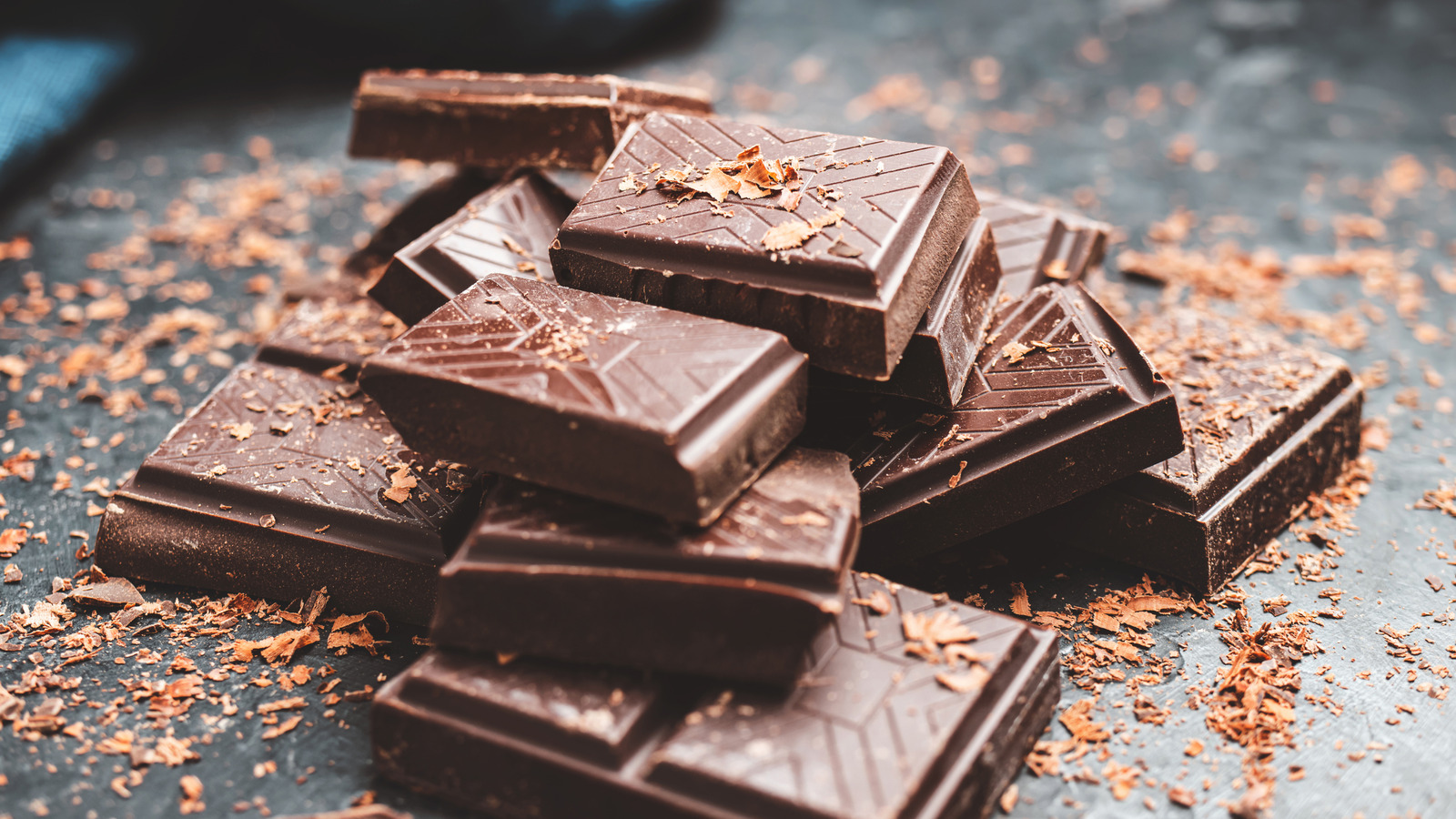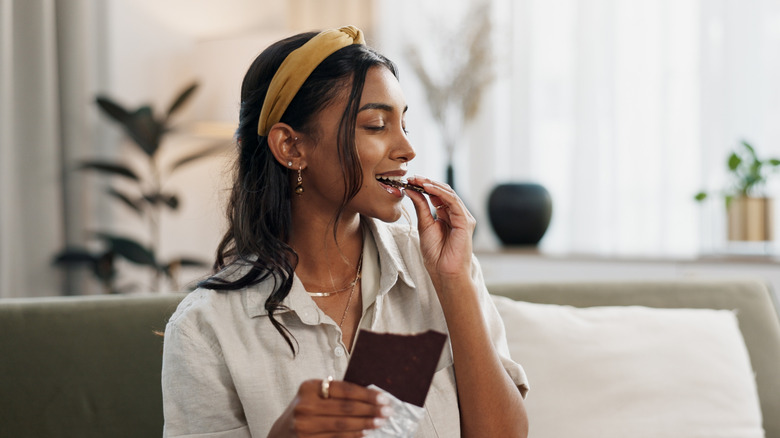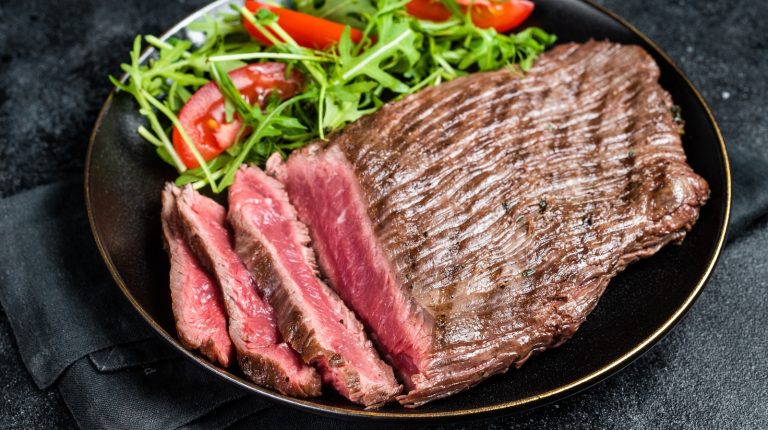Tending to our health can feel like a chore. Many of us actively try to eat more veggies, take supplements, and get our daily steps in, just to name a few. But it’s not all work and no play, because the science shows that there are legitimate health benefits to eating dark chocolate.
So says Kantha Shelke, PhD, CFS (Certified Food Scientist), principal at food science and research firm Corvus Blue LLC, and lecturer of food safety regulations at Johns Hopkins University, who spoke with Chowhound on the delicious topic. “Dark chocolate is rich in antioxidants like flavanols, polyphenols, and catechins which support heart health by improving blood flow, lowering blood pressure, and reducing inflammation,” Shelke explained in our exclusive chat. Feeling down, stressed, or anxious? Nibbling on a rich hunk of dark chocolate can be helpful for mood, too. Yes, that’s in terms of feel-good comfort, but also in data-backed ways; research shows that dark chocolate delivers doses of serotonin precursors and mood-boosting compounds.
Not all chocolate is created equal in terms of flavor, texture, or health benefits, however. Steer clear of the lower-quality stuff, (look out for these tell-tale signs) and go for bars that contain upwards of 70% cocoa content. Shelke explains this high number indicates each serving is chock full of health-promoting flavanols, theobromine, and nutrients such as magnesium and copper. We’ve ranked common store-bought dark chocolate bars, so there’s no need to break the bank for a bar that delivers the perks and the flavor.
All of the health perks, with essentially no downside
Just what can a chocolate connoisseur expect in terms of noticeable benefits from a chocolate habit? Though the science is clear that chocolate provides nutrients and compounds that improve everything from blood pressure to mood and stress levels, chocolate is not, of course, a cure all (chocolate lovers may not agree!). Think of eating dark chocolate as more of a “can’t hurt” habit to add into your overall health routine rather than a magic pill.
Are there any need-to-know downsides to eating moderate amounts of dark chocolate on the regular? For the most part, no, unless you have food allergies or are very sensitive to caffeine, which dark chocolate does contain in small amounts. Kantha Shelke recommends shooting for a 1- to 2-ounce serving daily, which also ensures you’re not eating large enough amounts to worry about the trace amounts of lead and cadmium chocolate can contain. “Pregnant individuals and those with pre-existing health conditions may be more vulnerable, but only if they consume large quantities of this product,” Shelke explains.
If you’re worried about the impact the sugar would have or if this would cancel any of the aforementioned health benefits, dark chocolate tends to be very low in sugar, especially when it’s higher in cocoa content, and has been shown to even improve our insulin sensitivity and keep blood sugar levels stable, unlike many other sweet treats. Consider this your science-backed nudge to get serious about your chocolate consumption — to which we say, if we must, we must! Anything for our health.





